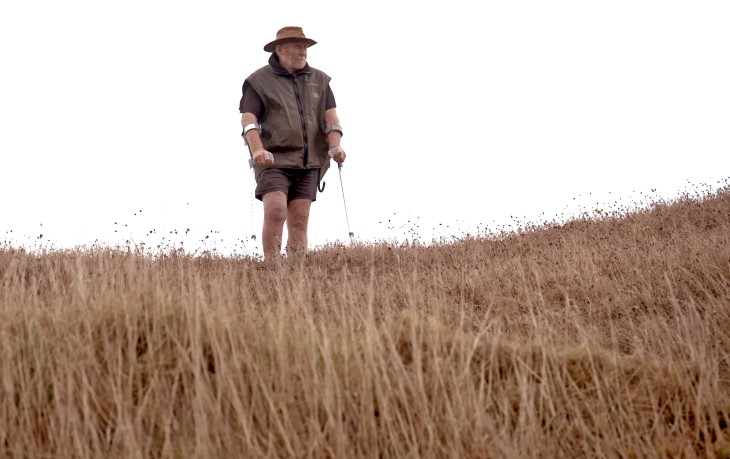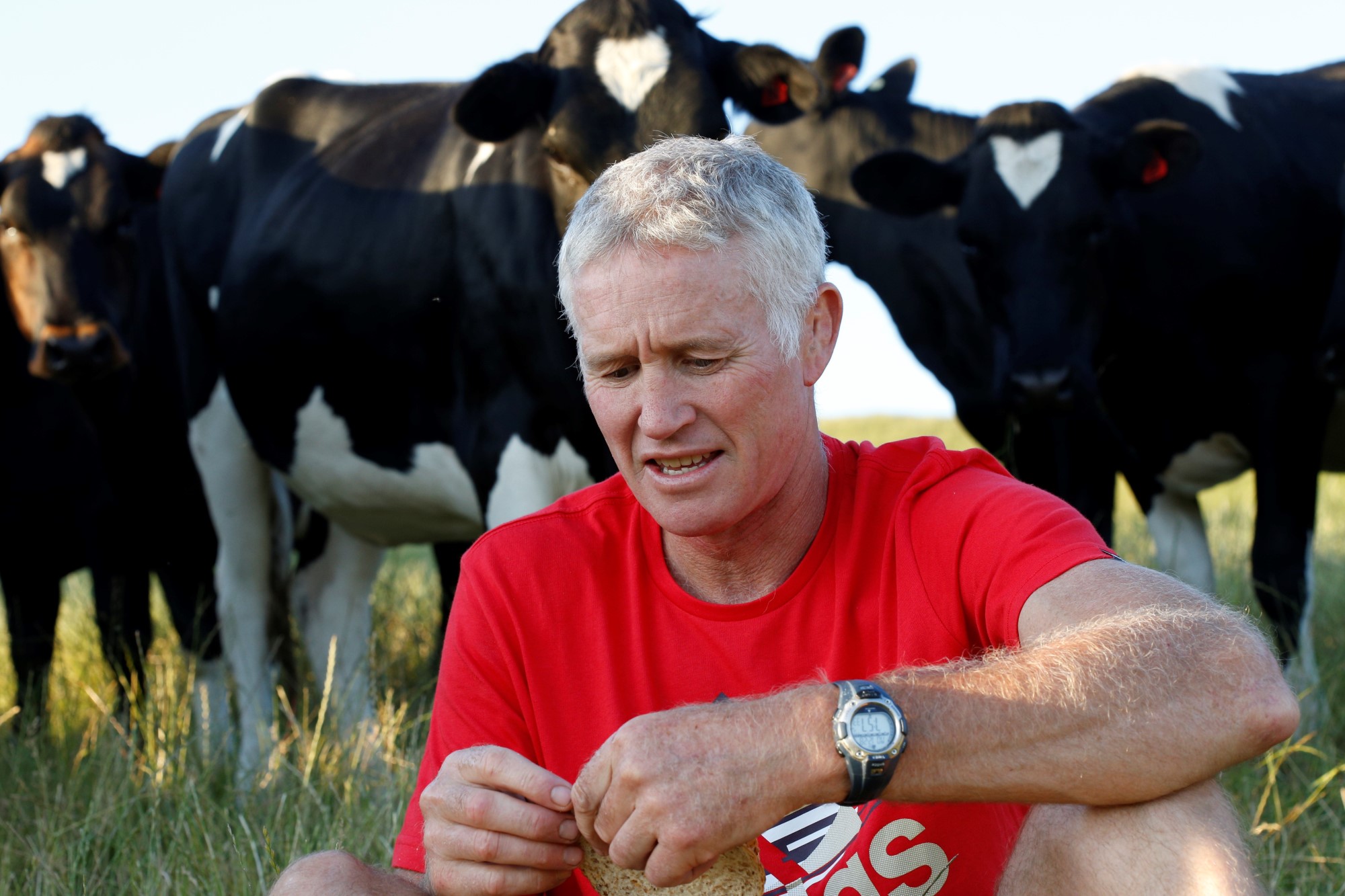Owen's story: How a near miss changed a life
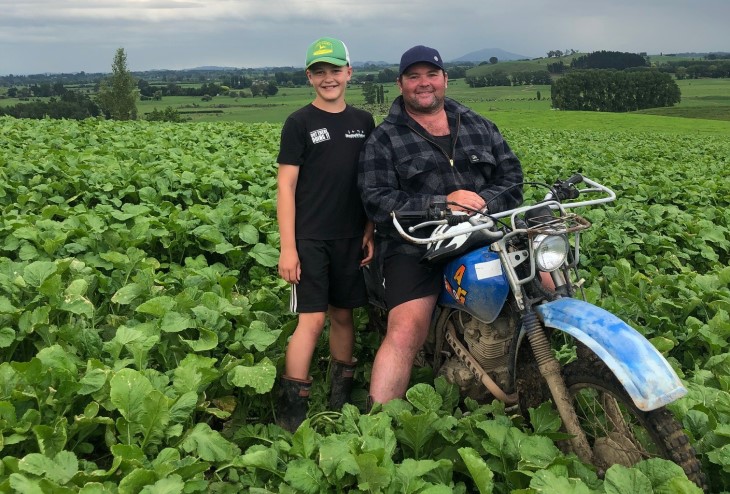
After having a brush with death on the farm, Owen Gullery hit reset on his life. He's telling his story so other farmers don't share a similar one.
Owen Gullery came within a few seconds of drowning in the effluent pond on his farm.
The incident happened in October 2011 when he crashed his tractor and it almost had fatal consequences. The night of the crash, Owen had a cow he knew he would have problems with calving so he was waiting to calve her. He went out to check on her late at night.
“We had a three-pond effluent system and I knew she was in the paddock by the dry pond, but it was a ‘pea soupy’ kind of night with fog everywhere,” he remembers.
“By the time I got to her it was 11 o’clock at night in October and I hadn’t had a day off all year. I drove the tractor up the side of the pond where I thought she was, went over the bank and before I knew it, the cab was filling up with effluent. I’d driven into the wrong pond because I was so tired.”
Owen went into a panic as he fought for his life.
“I couldn’t get anything to open. I ended up gasping for breath in the last couple hundred mls of cab space, managed to kick the back window open, grabbed the blade on the back of the tractor and hauled myself out. It was pretty scary. I ended up sitting on the bank balling my eyes out.
“I got home in shock and rang the boss to tell him his tractor was in the effluent pond, which was a strange conversation to have,” he laughs. “And after that? Well, after that… a lot of things changed.”
That near-fatal accident has changed the Cambridge farmer’s approach to life and his work. Now he’s alerting other farmers to the dangers of fatigue and burnout.
An ACC-funded study for Farmstrong, a rural wellbeing programme, shows 58 percent of recently injured farmers linked their accident to stress associated with farm work. A quarter of them said it was a major factor.
Exhaustion, lack of sleep, the stresses of farming, being isolated from friends and family, and being unable to take a break all add to the risks that a farmer or farm worker will have an accident, the research shows.
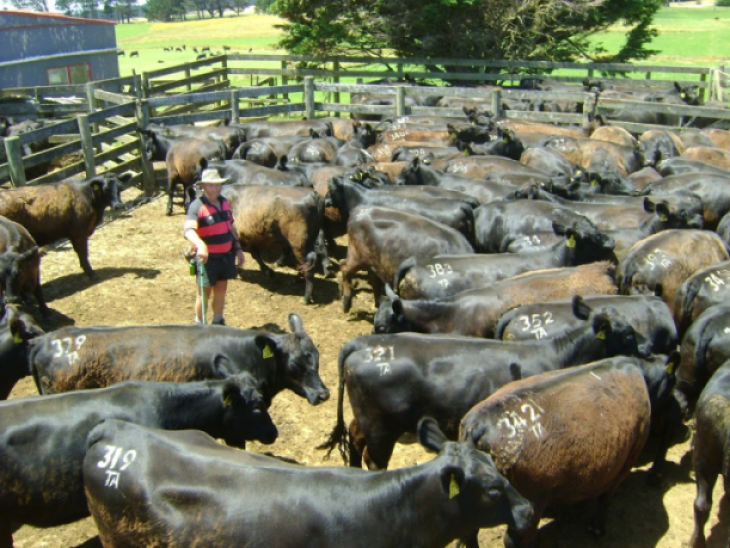
“300 days in a row without a break”
Owen contract milks 480 cows on a dairy farm near Cambridge. He’s been in the industry 20 years and loves “the daily challenges of farming – good and bad”.
“I’d only been contract milking a couple of years in the Manawatu. I was your typical ‘I’m gonna take on the world’ guy, working full-on hours. I wanted to make as much money as I could, bank every cent so I could buy a farm. That drove me to work 200 to 300 days in a row without a break.
“I only had one staff member when I actually needed two, but I was trying to save money. We had young kids too. I was busy on all fronts. But I thought, ‘It’s my time. I’m in my prime. I’ll go as hard as I can’.
That combination almost proved fatal. Agriculture is New Zealand’s biggest export earner but it’s also one of our most high-risk industries.
In 2020, there were 22,796 farm-related injury claims accepted which came at a cost of $84 million to help people recover. That is over 60 farmers getting injured every day.
In all, ACC has spent more than $383 million on farm related injuries in the past five years, with the cost in 2020 the highest from this period.
In the past five years in Waikato there were 22,652 farm related injury claims accepted, with 4,405 injuries occurring in 2020. This was the highest number for the past three years.
Resetting life goals and direction with Farmstrong
Following his crash, Owen employed part-time help. He took his first break of the year and scheduled two afternoons off a week. The family also reset their life goals and direction.
“We changed from being prepared to go anywhere and do anything just to own a farm to concentrating on being a stable, secure, happy family, no matter what it meant in terms of farm ownership,” he says.
“I don’t want to sound dramatic, but that’s what happens when you see your life flash before your eyes.”
“I could’ve easily not gone home that night and I never want anything like that to happen again. While farm ownership and herd ownership are great goals to have, they were no longer my priority. My priority was being there for my family and staying fit and health and a good head space.”
Owen wants to share his story to help other farmers avoid injury.
“In the dairy industry we often talk about cows and grass, but I reckon there’s a whole area that’s largely untapped - people’s ability to cope physically and mentally. I think if people were in a better space, staff turnover wouldn’t be as high and properties would do better. I’ve learnt that spending time off farm and remaining fit and healthy are actually very good for the business.
“That’s why Farmstrong’s invaluable, it makes it easier to discuss these things sensibly and maturely. Sure, rain and fertilizer make farms tick, but fundamentally farming relies on people.”
Live well to farm well
Farmstrong is a rural wellbeing initiative for farmers and growers to help them ‘live well to farm well’. It encourages farmers to share their stories and to look after themselves as well as they do their pasture and livestock.
In 2016 ACC became a strategic partner of Farmstrong, joining FMG and the Mental Health Foundation. Last year ACC increased their investment to $3.5 million over the next five years.
Owen spent time reflecting on what he liked about farming life and adjusted his work/life balance accordingly.
“Farming can be hard yakka. You’ve simply got to have downtime to stay healthy and safe. You need staff to enable that so instead of stretching it with part timers, we now have three full timers and that keeps everyone happy. Sure, it might cost me an extra 20 grand a year, but that’s insignificant in the scheme of your life and relationships.
“When you’re knackered, it makes everything about running your business that much harder. But it doesn’t actually cost you that much extra to have regular time off and a life outside the farm. Why wouldn’t you pay to avoid all that stress and strain on your business?”
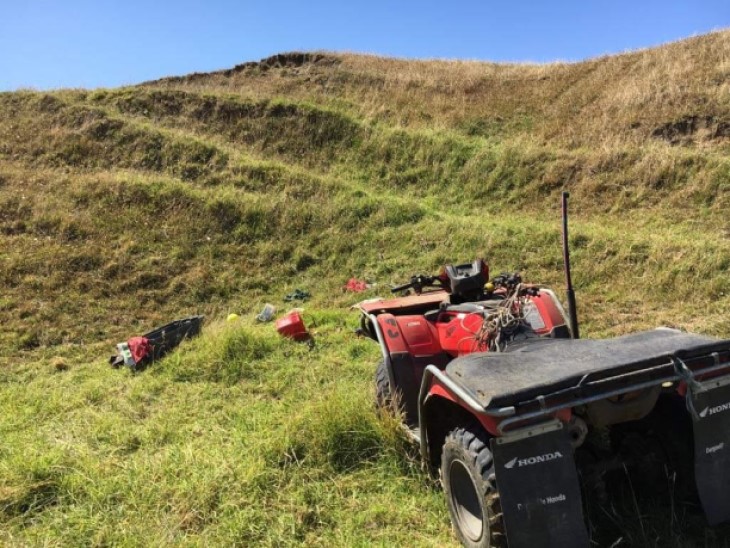
“Have a Hmmm”
Virginia Burton-Konia ACC’s Head of Workplace Safety says all farmers need to prioritise their wellbeing as many injuries are preventable.
“Farmers spend their lives growing our food and milk and helping our economy, but they're not great at looking after themselves,” says Burton-Konia.
“We are challenging all New Zealanders to have a Hmmm. It’s important for farmers, to take a moment to think about what they are about to do and think about what could go wrong to prevent injury.”
These days, Owen - a former front rower who loves his sport - plays tennis and cycles to keep fit and coaches his kids’ rugby. He also meets up with a group of other rural guys once a week to ‘solve the world’s problems over a beer’.
“We love being involved in our rural and school community. Our kids are growing up fast and there’s always plenty to keep us on our toes.
“Farming can be a great lifestyle, but not the way I was working. Prior to my accident I probably had no more than a week off over three years! Looking back, I realise there were near misses and close shaves all the time. But it literally took an accident to change my thinking.
“I still think about that night all the time. That accident was 100 percent my fault and avoidable. That’s why this stuff’s worth talking about.”



